Overview
Conference Theme and Key Elements
Core Themes
- Stakeholders and Partners
- Collaboration
- Engagement
- Inclusion
There are numerous stakeholders and partners in engineering education i.e., industry, government, Indigenous, Métis, and Inuit peoples, society, professional governance, accreditation, students, non-engineering programs, K-12 teachers, and researchers. Engineering graduates must have a broad range of skills and competencies; be able to work in a rapidly evolving socio-technological world and maintain sustainable practices; be adaptable and become leaders.
Along with most Canadian Engineering Programs, we are re-imagining and redeveloping our programs to support the energy transition; diversity, equity and inclusion; sustainability; engineering leadership; engagement with Indigenous people and the future of work and society. Join us at the University of Alberta on Treaty 6 territory, as we identify and engage with stakeholders to improve and innovate in our programs developing and designing the engineers of the future.
Our Sponsors
Partner

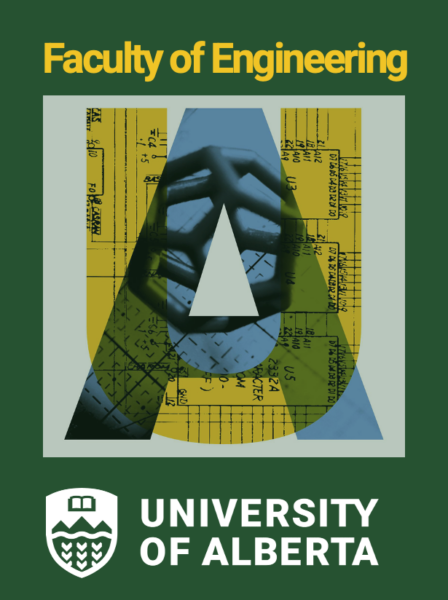
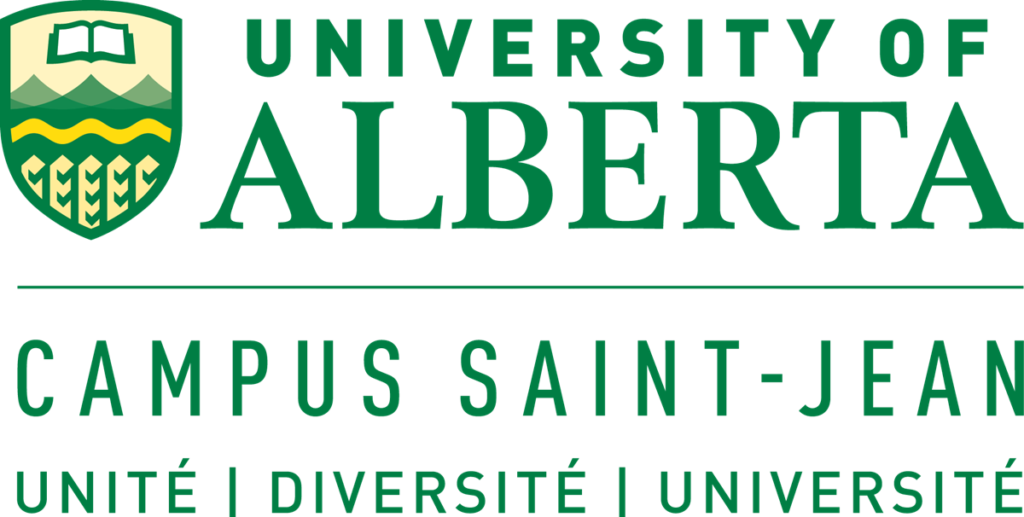
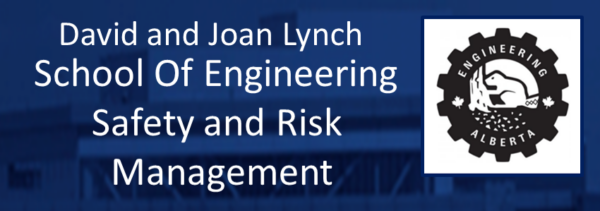
Senior Innovator
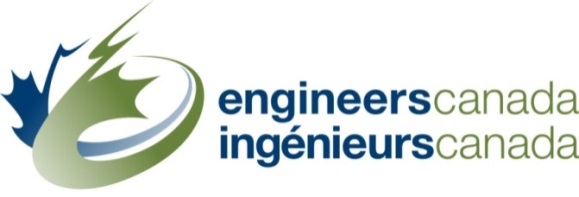
Registration
Conference Registration fees (does not include tax)
Register here: https://ceea.wildapricot.org/event-5597535
Conference Registration
Early-Bird Rates for CEEA-ACÉG Members – valid until May 13:
- Professional CEEA-ACÉG member Early-Bird – $750
- Professional CEEA-ACÉG member (Diploma and Transfer Institution) Early-Bird – $575
- Student CEEA-ACÉG member Early-Bird – $300
Regular Conference Registration Options – valid May 14 – June 18:
- Professional CEEA-ACÉG member – $850
- Professional CEEA-ACÉG member (Diploma and Transfer Institution) – $650
- Student CEEA-ACÉG member – $350
- Non-Presenting Undergraduate Student – $250
One-Day Registration Fees:
- Monday Only, Tuesday Only, or Wednesday Only Registration – $400
- K-12 Teacher Day (Monday only)
- Early bird – $85
- Regular registration – $100
- MSGCEE registrants (Tuesday only) – $250
- *Conference Banquet and BBQ tickets are available for purchase for one-day participants*
Pre-Conference Activities Registration:
Saturday Events:
- Full-day IEER+IET Workshops (any combination)
- Professional CEEA-ACÉG member – $225
- Student CEEA-ACÉG member – $75
- Non-CEEA-ACÉG member – $350
- Full-day PEP (only 30 participants)
- Professional CEEA-ACÉG member – $40
- Student CEEA-ACÉG member – $40
- Non-CEEA-ACÉG member – $350
- Half-day IEER or IET Workshop
- Professional CEEA-ACÉG member – $160
- Student CEEA-ACÉG member – $60
- Non-CEEA-ACÉG member – $225
Sunday Events:
- Conference Workshops
- CEEA-ACÉG member – $150
- Non CEEA-ACÉG member – $200
- Connecting with the Land: Insights from Cree Elder Ken White (6 pm – 9 pm)
- CEEA-ACÉG member – $45
Conference Registration Add-Ons:
- Extra Sunday Reception Ticket – $40
- Extra Banquet Ticket – $100
Registration Links and details
- CEEA-ACÉG membership: https://ceea.ca/membership/
- Register for the conference here: https://ceea.wildapricot.org/event-5597535
- Event code of conduct
- CEEA-ACÉG Student Scholar Grant
Please contact [email protected] if you need to make changes to your conference registration (including adding or changing workshops). Thank you.
Venue
Venue/Accommodations
The Canadian Engineering Education Association (CEEA-ACÉG) 2024 conference will be hosted by the University of Alberta Faculty of Engineering.
Edmonton and the University of Alberta are located on Treaty 6 territory, a traditional gathering place for diverse Indigenous peoples including the Cree, Blackfoot, Métis, Nakota Sioux, Iroquois, Dene, Ojibway/ Saulteaux/Anishinaabe, Inuit, and many others whose histories, languages, and cultures continue to influence our vibrant community. Edmonton is located on the banks of the North Saskatchewan River and the River Valley is a beautiful location for walking, running and biking. There are several golf courses nearby, Whyte Avenue and Downtown offer many opportunities for dining and shopping. The Royal Alberta Museum, Fort Edmonton and the Ukrainian Cultural Heritage Village offer perspectives on the history of the area. River Lot 11 and the Art Gallery of Alberta offer creative perspectives.
Learn more about Edmonton.
Conference Location
Getting to Edmonton
The Edmonton area is served by the Edmonton International Airport (https://flyeia.com).
Things to Do in Edmonton
Summer officially arrives towards the end of June, bringing with it lots of fun and sun.
Getting to the Conference Venues
The CEEA-ACÉG 2024 pre-conference workshops and conference are hosted by the Faculty of Engineering at the University of Alberta. The North Campus Map can be accessed here. The City of Edmonton operates a 747 transit bus between the airport and the Century Park LRT station. Please see the link for the schedule, fare, routes and questions you may have. For alternate transportation from the airport there are taxi and limo options (taxi to downtown March flat rate is $62) and car rental options here. For ARC card information, please see here. Please note convention transit passes (available with registration) do not include the 747 bus service.
Engineering Teaching and Learning Complex
9120 116 Street,
Edmonton, AB T6G 2B4
Edmonton Convention Center
The conference banquet will be hosted at the Edmonton Convention Centre.
9797 Jasper Ave
Edmonton, AB
Parking on campus
Paid Daily Parking is available at the conference venues. Parking information for the U of A campus can be found here. Parking can be paid via the Honk mobile app or at the pay stations on campus. The closest parking to the conference venue is Windsor Car Park. For accessibility, there is a door on the sixth level that connects to the conference venue through the Donadeo Innovation Center. Parking is not included with the U of A residence options.
Accommodations
There are multiple lodging options in Edmonton. The most convenient places to stay are the Campus Hotel, options near Whyte Avenue and downton. The LRT connects the University and downtown and there is bus service to Whyte Avenue.
There are multiple lodging options in Edmonton. The most convenient places to stay are near Whyte Avenue and downtown. The LRT connects the University and downtown and there is bus service to Whyte Avenue. Once you arrive at your hotel, there is public transit available. Route 4, 8 and 726 may be of interest if you are staying on Whyte Avenue. The LRT service is accessible from the University and downtown. Please book your accommodations early to obtain the best rates. The rates listed below are only available until the rooms sell out. The University of Alberta Residence is available at a lower cost, please book early to avoid disappointment.
Varscona Hotel on Whyte
Rooms starting at $159 CAD per night – Booking link
All room rates are subject to a 4% Alberta Provincial Tourism Levy, 5% Goods and Services Tax, and 3% Destination Marketing Fee (Subject to GST). All tax structures and percentages are subject to change without notice. Rates are on a per room, per night basis (single or double occupancy).
Additional features may include:
- Executive breakfast buffet – 6:30 to 9:30 AM weekdays | 7:30 to 10:30 AM weekends & holidays
- Complimentary self-parking
- In-room high-speed Internet access
- Unlimited local phone calls & calling card or toll-free calls
- In-room Illy coffee maker
- Unlimited access to the Fitness Facility
- 24-hour access to the Business Centre
For reservations or to contact the hotel: 780-434-6111 or [email protected] or book online for more options. You must indicate you are booking with the CEEA-ACÉG open room block.
Varscona Hotel on Whyte “is a charming lifestyle hotel providing a warm and comfortable hospitality experience to those looking for a home away from home when they travel. Situated in the heart of Edmonton’s historic Old Strathcona, and nestled amongst numerous restaurants, boutiques and theatres blending bohemian panache with contemporary chic. This central location provides easy access to the University of Alberta, downtown and south Edmonton business and government districts. The Edmonton river valley is a few blocks away and offers miles of cycling and walking paths, parks and off leash areas.”
Accessibility: The Varscona Hotel is ~2.7 km from the conference venue (~35 minute walk). The Route 4, 8 and 726 bus stop is in front of the hotel. The conference venue is a ~10 minute bus ride and ~10 minute walk to the conference venue. It is located 3.5 km from the Banquet location.
Note: Special group rate for Canadian Engineering Education Association attendees is reserved for a limited supply, at the above rate and are subjected to tax. Pre & Post nights may be available upon request. The last day to book with the special group rate, while supplies last, is Wednesday, May 15, 2024.
Metterra Hotel on Whyte
Rooms starting at $169 CAD per night – Booking Link
All room rates are subject to a 4% Alberta Provincial Tourism Levy, 5% Goods and Services Tax, and 3% Destination Marketing Fee (Subject to GST). All tax structures and percentages are subject to change without notice. Rates are on a per room, per night basis (single or double occupancy).
For reservations or to contact the hotel: 780-465-8150 [email protected] or book online for more options. You must indicate you are booking with the CEEA-ACÉG room block.
Metterra Hotel on Whyte “is an authentic lifestyle hotel in Edmonton offering a contemporary hospitality experience to travelers who appreciate accessible luxury. Business travelers can enjoy close proximity to the University of Alberta, downtown and south Edmonton business and government districts. From our prominent location on Whyte Avenue in the centre of Edmonton’s trendiest neighbourhood, you’ll find the city’s most walkable district and dozens of boutiques, cafés, coffee shops and pubs. The Edmonton river valley is a few blocks away from Whyte Ave. and offers miles of cycling and walking paths, parks and off leash areas.”
Accessibility: The Metterra Hotel is ~2.9 km from the conference venue (~40 minute walk). The Route 4, 8 and 726 bus stop is in front of the hotel. The conference venue is a ~15 minute bus ride and ~10 minute walk to the conference venue. It is located 3.5 km from the Banquet location.
Note: Special group rate for Canadian Engineering Education Association attendees is reserved for a limited supply, at the above rate and are subject to tax. Pre & Post nights may be available upon request. The last day to book with the special group rate, while supplies last, is Wednesday, May 15, 2024.
Matrix Hotel Downtown
Rooms starting at $169 CAD per night – Booking Link
All room rates are subject to a 4% Alberta Provincial Tourism Levy, 5% Goods and Services Tax, and 3% Destination Marketing Fee (Subject to GST). All tax structures and percentages are subject to change without notice. Rates are on a per room, per night basis (single or double occupancy).
Matrix Hotel Downtown: “The Matrix Hotel provides a distinctive hospitality experience to travelers who appreciate great design in the heart of the city. The hotel is centrally located downtown between the business and government districts for the convenience of the corporate traveler. After the work day or for the leisure traveler, the Edmonton river valley is a short stroll away as are the many shops, restaurants, cafés, arts and theatre venues.”
Accessibility: The Corona LRT station is about a 4 minute walk to the Matrix Hotel. The Matrix Hotel is 3 km from the conference site. This is about a 45 minute walk or a 20 minute LRT ride and walk. It is located 1.4 km from the Banquet location. https://www.matrixedmonton.com
Note: Special group rate for Canadian Engineering Education Association attendees is reserved for a limited supply, at the above rate and are subject to tax. Pre & Post nights may be available upon request. The last day to book with the special group rate, while supplies last, is Wednesday, May 15, 2024.
U of A – Residence Options
Room rates listed are per night and exclude taxes.
- hotel-style rooms in Lister Centre (very limited number available) – $109
- single private room (Shäffer Hall) – $76
- traditional dormitory room (single-occupancy) – $70
- traditional dormitory room (twin; i.e., double-occupancy) – $80
Check-in time is 4:00 PM; check-out time is 11:00 AM.
Individual reservations: phone 780-492-6056 / fax 780-492-5597 / e-mail [email protected] Please request to be part of the CEEA-ACEG 2024 room block.
Reservation form. This form can be faxed to 780-492-5597 or e-mailed to [email protected]
Meals: There are limited light breakfast options available at Lister Centre with more options nearby on campus. Paid parking is available on campus. Residence rooms are not air-conditioned.
Papers
Call for Submissions
Deadline for full anonymized paper for peer review: February 26th, 2024 *EXTENDED TO MARCH 4, 2024*
- Workflow
- Paper submission *now closed
- Abstract guide
- Full paper guide – NEW
- Abstract and full paper review rubrics
- Discussion submission
- Sunday workshop template
- Conference collaboratorium template
- Conference panel template
- Discussion stream (workshop panel collaboratorium) review rubric
- Right to Publish Form – NEW
Collaborative and Flexible Engagement in a Transitioning World.
We have numerous stakeholders and partners in engineering education: students, industry, government, Indigenous, Métis, and Inuit communities, society, professional governance, practitioners, accreditation bodies, non-engineering programs, K-12 teachers, and researchers. Engineering graduates must have a broad range of skills and competencies; be able to work in a rapidly evolving socio-technical world and maintain sustainable practices; be adaptable and become leaders. A key element of collaboration is identifying and engaging with stakeholders and partners to receive feedback to improve and innovate our programs. Most Canadian engineering schools are re-imagining and redeveloping programs to support many key changes including the energy transition; diversity, equity and inclusion; sustainability; engineering leadership; engagement with Indigenous, Métis, and Inuit People and the future of work and society.
We are developing and designing the engineers of the future.
We invite all with an interest in engineering education to participate in the 2024 CEEA-ACÉG Conference. We welcome post-secondary engineering educators, undergraduate and graduate students, industry partners, regulators, accrediting bodies, and K-12 STEM and STEAM teachers in primary and secondary school who facilitate the development of our engineering students and their transition to become engineers.
The conference is open to all engineering education areas and the examination of societal influences and impacts driving pedagogical innovation and changes in the profession. The conference organizing committee aims to bring representatives of all our stakeholders and partners to the conference to discuss current needs, practices, and challenges. We aim to encourage attendees to challenge the status quo and barriers to improving engineering education in Canada.
2024 Themes: Stakeholders, Partners, Collaboration, Engagement, and Inclusion
How we engage students in learning shapes their collaborative and inclusive efforts. We invite papers written in English or French in all areas of engineering education, with a particular focus on the topics below:
- Leadership and Entrepreneurship – How do stakeholders and educators shape engineering leaders and entrepreneurs for the future? How do we prepare them for ethical decisions in engineering work, operations, and projects? How do we prepare students for the ethical use of resources and a circular economy?
- Sustainability – How do we define societal stakeholders? How do stakeholders inform how sustainability is included in the engineering curriculum? How do engineering educators implement sustainability to engage and develop student understanding of stakeholder requirements and a transitioning world?
- Stakeholders and Engineering Design – How is inclusivity implemented in engineering design and in the engineering culture? How are Indigenous perspectives, ways of knowing, and practices included in engineering design in a post-colonial era? What are Indigenous engineering design methods and practices? In what ways can engineering and K-12 educators work together to improve engineering education? How are innovation and sustainable design practices included in engineering education?
- Diversity, Equity, and Inclusivity – How are diversity and inclusivity informing the teaching practices, including course and/or program development and delivery, in engineering? What impact does their implementation have on students? How do we give a voice to stakeholders who may not be heard or included?
- Emerging Issues and Practices in Engineering Education – Competency Based Assessment, International Exchange courses, ChatGPT, Academic Integrity, Engineering Culture, Identity, and Ethics.
- Integration of hands-on experiential, co-curricular and extracurricular activities – Design and manufacturing are integral to the engineering profession. How can the student learning experience and knowledge retention be improved by interleaving access to hands-on experience facilities like fablabs, engineering garages, design studios, maker spaces, and undergraduate/graduate entrepreneurship centres and incubators? What are the best practices, case studies, and lessons learnt?
Paper Track Options Requiring a Structured Abstract Submission
- Podium Talks (10 minutes presentation + 10 minutes Q&A)– Podium talks aim to briefly explain the author’s work through presentation slides with questions from the audience. Accepted Podium Talks are required to submit a full-length paper which may be in either English or French (maximum length 8 pages).
- Lightning Talks (5 minutes presentation + 5 minutes Q&A) – A shorter talk that focuses on key ideas and the results. Lightning talks are well suited for works-in-progress, early research findings, and introducing ideas to start conversations. Authors who deliver their work in a lightning talk presentation may submit a full paper for peer review if they wish to be published in the CEEA-ACÉG proceedings.
- Poster Presentation – These presentations are useful for active and longer interaction between presenters and the audience. Posters are to be concise, emphasizing a graphical representation of ideas and results. Authors who deliver their work in a poster presentation may submit a full paper for peer review if they wish to be published in the CEEA-ACÉG proceedings.
Structured Abstract Requirements for Podium Talks, Lightning Talks & Posters
Podium Talk, Lightning Talk and Poster authors must submit a short anonymized structured abstract (500 words) via Oxford Abstracts by November 20, 2023, EXTENDED UNTIL NOVEMBER 27TH, 2023 along with the appropriate stream and a ranked list of preferred presentation modes. We invite submissions in English or French. Authors should refer to the Author Guidelines for CEEA-ACÉG Structured Abstracts in preparing and formatting their submission, and for the abstract rubric that will be used for peer review. After peer review, detailed feedback specific to authors’ chosen presentation mode will be communicated to the authors. Authors who would like to suggest presentation modes other than those listed above are invited to contact the conference Organizing Committee by email ([email protected]).
Submissions need to be aligned with one of the following streams:
- Engineering Education Scholarship of Teaching & Learning (“SoTL”): includes accounts and reflections of the practitioner’s own innovations, experiences, and evidence-based interventions in their engineering education context. The goal is to share the practitioner’s experiences.
- Engineering Education Research (“Research”): includes reports of scholarly investigations, critiques, meta-analyses, literature reviews, and empirical development of methods, tools, and frameworks. The goal is to generate transferable or generalizable knowledge that can be applied to other contexts.
All submissions will undergo a peer review process to be accepted for the conference.
For engineering education scholarship of teaching & learning submissions, the 500-word structured abstract should follow these labelled sections:
- Background – Briefly describe the context and motivation for the work.
- Purpose – Summarize the purpose (aim) of the project/intervention/practice.
- Approach – Provide an overview of the project/intervention/practice.
- Outcomes – Discuss the (anticipated) impact of the project/intervention/practice.
- Conclusions – Reflect on the (anticipated) learnings of the project/intervention/ practice.
For engineering education research submissions, the 500-word structured abstract should follow these labelled sections:
- Background – Describe the motivation for the study and research gap and/or contribution to the literature/field.
- Purpose/Hypothesis(es) – Summarize the research question(s) or hypothesis.
- Design/Method/Methodology – For research papers, provide an overview of the research design, including conceptual/theoretical framework, and data collection and analysis methods. For review papers, describe the methods used to identify and synthesize primary studies, and relevant details of inclusion criteria.
- Results/Findings – Summarize the (anticipated) quantitative or qualitative findings.
- Conclusions – Discuss the key implications of the (anticipated) findings.
The author must label each part of the structured abstract with the appropriate subheading. Abstracts are limited to 500 words (excluding title, keywords, and subheadings). Abstracts should not include references. The sections under each subheading do not need to be of equal length.
Submissions and review are done through a double anonymous process. All author and affiliation information must be redacted in the structured abstract and in the full paper draft submissions.
Keywords
Three to five keywords should follow the structured abstract. Authors may choose their own keywords and are encouraged to select keywords from the Engineering Education Research Taxonomy (Regents of the University of Michigan, 2013) whenever appropriate. Note that a keyword can be more than one word.
Ethics Approval
Does your study require ethics approval? When you submit your structured abstract, please note there will be questions on whether your SoTL/research project requires ethics approval. Authors are responsible for following their institutional requirements regarding ethics. It is each author’s responsibility to determine if they require ethics approval for the work they are reporting on. Each author will be required to either:
- Declare that their study DOES require ethics approval, and approval has been granted.
- Declare that their study DOES require ethics approval, and approval is pending.
- Declare that their study does NOT require ethics approval.
If authors DO require ethics approval, they must NOT submit their work for review unless ethics is approved or pending.
Review Criteria for Abstract
Abstracts will be reviewed for fit with the field (engineering education) and the conference themes, for coherence, quality, and for addressing all elements of the structured abstract.
Discussion Track Options Requiring a Questionnaire Submission
These sessions typically run for about 90 minutes and include the following presentation modes:
- Panel Discussion – These sessions facilitate active conversation between presenters and audiences from diverse backgrounds. During proposal submission, authors will need to identify and propose at least three other panelists and a moderator. The submission should focus on the plan for moderating audience interaction. Each panelist will have opening and closing remarks, between which longer discussions occur within the panel and with the audience. Authors are encouraged to select discussion topics that are closely relevant to the conference theme and streams. We also encourage submissions from the CEEA-ACÉG Special Interest Groups.
- Collaboratorium (Unconference) – These sessions typically consist of roundtable facilitated group discussions on a topic presented by organizers. Typically, there are 3-5 roundtable discussions happening in parallel in the same room with interconnected topics. Notes are taken, and after a select amount of time, participants are directed to move to another roundtable. These sessions help participants brainstorm about the topics and enable the free flow of thoughts from participants with diverse backgrounds. Authors are encouraged to select discussion topics that are closely relevant to the conference theme and streams. We also encourage submissions from the CEEA-ACÉG Special Interest Groups.
- Workshops – The CEEA-ACÉG 2024 Organizing Committee invites proposals for workshops addressing relevant practices, issues, or technologies related to teaching/learning practices and engineering education research. Workshops will be delivered on Sunday, June 16th, 2024. Workshop spaces are limited, and we cannot guarantee acceptance of all submissions. Hence, while proposing a workshop, presenters are encouraged to consider alignment with the conference theme, streams, or CEEA-ACÉG Special Interest Group topics. Workshops must be centred on active participant engagement such that participants spend most of the time in the workshop engaging in activities (individually, and in small & large groups).
Submission Requirements for Panels, Workshops and Collaboratoriums
To propose a session, please submit the Panel/Collaboratorium/Workshop Questionnaire via Oxford Abstracts by January 8, 2024.
- Panels: The questionnaire will ask moderators/organizers to describe the panel format, biographies and credentials of the panellists (not anonymized), a description of the topic to be addressed and the topic’s relevance to the conference themes, and samples of the questions the panellists will address. Panel proposals will be evaluated based on overall quality, fit to the conference, anticipated interest, and the amount and quality of planned participant engagement. Specific feedback will be communicated to the authors.
All discussion stream submissions are evaluated as per the overall discussion stream rubric based on overall requirements for this stream. Please see the full Panel Evaluation Rubric for expectations specific to panel sessions and the panel template at the top of this page.
- Collaboratoriums: The questionnaire will ask moderators/organizers to describe the collaboratorium format and schedule, a description of the topics/questions to be addressed, how long each topic discussion will take, the topic’s relevance to the conference themes, and how participants will engage in the collaboratorium. Collaboratorium submissions will be evaluated based on overall quality, fit to the conference, anticipated interest, and the amount and quality of planned participant engagement. Specific feedback will be communicated to the authors. Please see the full Collaboratorium evaluation rubric for expectations specific to these sessions and the collaboratorium template at the top of this page.
- Workshops: The questionnaire will ask workshop facilitators to provide information about the facilitators; a description to be part of the official conference materials; specific learning objectives; a workshop plan including the proposed learning activity schedule, plans and activities for participant engagement; and other relevant details. Workshop proposals will be evaluated based on overall quality, fit to the conference, anticipated interest, and the amount and quality of planned participant engagement. Please see the full Workshop Evaluation Rubric for expectations specific to these sessions and the workshop template at the top of this page.
Important Dates
- Abstracts due for podium talks, lightning talks, and posters: November 20, 2023 EXTENDED UNTIL NOVEMBER 27TH, 2023
- Notification of acceptance of abstract: December 21, 2023
- Panel, Collaboratorium, and Workshop Proposals due: January 8, 2024
- Notification of acceptance of Panel, Collaboratorium, and Workshop proposals: January 29, 2024
- Deadline for full anonymized paper for peer review: February 26, 2024
- Feedback from reviewers: March 22, 2024
- Final papers with revisions and author details due: April 15, 2024.
- CEEA-ACÉG Annual Conference + workshops: June 15 – 19, 2024
All deadlines are at 11:59 pm (PST). Papers identified as requiring major revisions will undergo a second review and revision phase between April 15, 2024 and May 10, 2024.
Feel free to reach out to the Organizing Committee ([email protected]) for any queries about submissions or session modes, or to make suggestions. More information regarding the speakers, registration, and schedule will be published soon. Visit the website (https://ceea.ca/conference/conference-2024/) for the most up-to-date information relating to abstract submission, registration, deadlines, speaker information, and schedules.
Schedule
Schedule
June 15, 2024 – Institute Workshops
- Institute for Engineering Education Research (IEER)
- Institute for Engineering Teaching, IET
- Philosophy of Engineering Practice (PEP) – New!
June 16, 2024 – Sunday Workshops and Welcome Reception, Connecting with the Land (Land Based Learning)
- Track 1 – Leadership and Innovation in Engineering Education Equity, Diversity and Inclusion
- Track 2 – Emerging Issues and Communities of Practice
- Track 3 – Stakeholders and Engineering Design
- Track 4 – Integration of hands-on experiential learning activities
- Track 5 – Engineering Education Research Methods
- Track 6 – SoTL SIG Workshop
June 17, 2024 – Conference Welcome, Opening Speaker, SIG Meetings, K-12 Teacher Day
June 18, 2024 – Poster Session, Conference Banquet, Speaker and Awards
June 19, 2024 – Closing Speaker and CEEA-ACÉG Annual General Meeting
Speakers
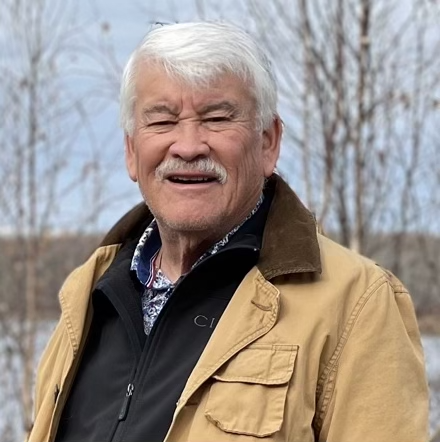
Dr. Elmer Ghostkeeper BA MA LL(Hon)
University of Alberta
Opening Speaker
Monday, June 17
Elmer Ghostkeeper was born to parents Adolphus and Elsie Ghostkeeper at the Paddle Prairie Métis Settlement, Alberta. He is Métis and speaks fluent Bushland Cree and Michif, the language of Métis people. He is a spiritualist, father, grandfather, teacher, student, learner, philosopher and entrepreneur. He has worked tirelessly over 50 years as a politician, community leader, business person, knowledge keeper and scholar to promote the rights of Métis peoples in Canada and to build relationships across Indigenous and non-Indigenous worldviews.
A holder of two anthropology degrees from the University of Alberta, his master’s thesis in cultural anthropology was published into a book, “Spirit Gifting: The Concept of Spiritual Exchange,” which outlined a way for Aboriginal wisdom traditions to be partnered with western scientific knowledge. His work led to a model called “Weche Teachings/Wisescience”, a partnership of Aboriginal wisdom and western scientific knowledge to understand and solve puzzles affecting Aboriginal People. Elmer was awarded an Honorary Doctorate of Laws from the University of Alberta on November 22nd, 2022.
In the past 50 years, this work has shaped national, international, and local policy, research and teaching conversations about the ways in which Indigenous knowledge systems and western scientific traditions might work together. Elmer also shares this knowledge with faculty, staff, and students at the University of Alberta and contributes to the University’s strategic priority to Indigenize curricula, policies, and research.
His many accomplishments include serving as president of the Alberta Federation of Métis Settlements Associations, advocating for inclusion of Métis peoples among the Aboriginal Peoples of Canada in the Canadian Constitution. In 2004, Elmer received the Order of the Métis Nation for securing recognition of the Métis in the Constitution of Canada.
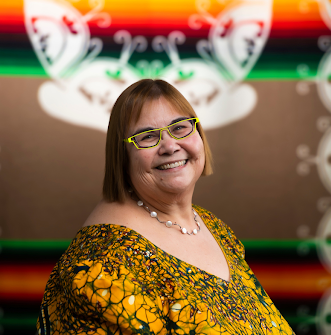
Dr. Florence Glanfield, Vice Provost, (Indigenous Programming & Research) Professor, Mathematics Education
Banquet Speaker
Tuesday, June 18
Dr. Glanfield is a member of the Métis Nation of Alberta. In her role as Vice-Provost (Indigenous Programming and Research), Dr. Glanfield led the development, consultation, and approval of the Indigenous Strategic Plan in support of the objectives articulated in For the Public Good, build and nurture positive relationships with Indigenous communities, support the work of Faculties and Departments to Indigenize curricula across programs, and foster a supportive environment for Indigenous faculty, students, and staff.
Dr. Glanfield comes to the Vice-Provost position from her previous role as Professor and Chair of the Department of Secondary Education in the Faculty of Education, where her primary areas of scholarship include mathematics teacher education, Aboriginal curriculum perspectives, and relational research methodologies. She is an Affiliated Faculty member with the Centre for Research for Teacher Education and Development.
For more information about Dr. Glanfield click HERE.

Honorable Omar Alghabra, M.P., MBA, BSc, (Mechanical Engineering)
Closing Speaker
Wednesday, June 19
Omar Alghabra is a senior executive and a leader with a distinguished career in the private and public sector, most recently as the Minister of Transport in the Government of Canada. Omar holds a Mechanical Engineering degree from Toronto Metropolitan University and an MBA from York University.
Prior to becoming Minister of Transport, Omar served as the Parliamentary Secretary to the Minister of Foreign Affairs, Parliamentary Secretary to the Minister of International Trade and Parliamentary Secretary to the Prime Minister. As the Minister of Transport, Omar delivered key initiatives that advanced Canada’s economic prosperity, security, and competitiveness. During the COVID pandemic, provided steady leadership navigating through complex public health, security, and economic challenges.
During his term at Transport Canada, he overhauled the rules that govern the transportation network and supply chains, establishing the foundation of more resilient, greener and innovative transportation system in Canada. As a member of Canada’s cabinet, he contributed substantively to decisions facing one of the most turbulent and challenging periods in the world’s history.
In the private sector, Omar worked with several corporations, including companies like GE where he worked in various capacities including in quality assurance, sales and business operations.
Sponsors
Sponsors
Become a CEEA-ACÉG 2024 Sponsor
As a contributor you will reach a network of influencers, decision-makers, and likeminded engineering leaders. For details on the sponsorship packages available, please see the 2024 Sponsorship Package.
For further information, please contact the Conference Organizing Committee at ([email protected]).
Our Sponsors
Partner




Senior Innovator
Innovator
Collaborator
Friend
Partner $15,000
- Acknowledgement on CEEA-ACÉG website, sponsor page & banners
- Recognition on the conference pre-session presentation slide
- A short paragraph in one of the CEEA-ACÉG pre-conference membership newsletters*
- Inclusion in conference social media/ promotional materials
- 3 conference registrations included
- Booth or table space** in high traffic area or free registration to a conference workshop (larger area available for partners)
- Sponsorship of a themed single conference session with the opportunity to open the session with relevant comments (~1 minute)*
- Opportunity to sponsor a Sunday workshop theme
- Sponsorship of one of the opening or closing sessions
- Opportunity to do a 3-minute address at plenary session*
- Recognition as a banquet sponsor
- Speaker ready room sponsorship**
*remarks must be pre-approved by CEEA-ACÉG.
**sponsor supplied stand alone floor banner with logo
(A la carte opportunities to customize the package are available)
Senior Innovator $10,000
- Acknowledgement on CEEA-ACÉG website, sponsor page & banners
- Recognition on the conference pre-session presentation slide
- A short paragraph in one of the CEEA-ACÉG pre-conference membership newsletters*
- Inclusion in conference social media/ promotional materials
- 2 conference registrations included
- Booth or table space** in high traffic area or free registration to a conference workshop (larger area available for partners)
- Sponsorship of a themed single conference session with the opportunity to open the session with relevant comments (~1 minute)*
- Opportunity to sponsor a Sunday workshop theme
- Recognition as a lunch sponsor
*remarks must be pre-approved by CEEA-ACÉG.
**sponsor supplied stand alone floor banner with logo
(A la carte opportunities to customize the package are available)
Innovator $5,000
- Acknowledgement on the CEEA-ACÉG website, sponsor page & banners
- Recognition on the conference pre-session presentation slide
- A short paragraph in one of the CEEA-ACÉG pre-conference membership newsletters*
- Inclusion in conference social media/ promotional materials
- 1 conference registration included
- Booth or table space** in high traffic area or free registration to a conference workshop (larger area available for partners)
- Sponsorship of a themed single conference session with the opportunity to open the session with relevant comments (~1 minute)*
- Recognition as a breakfast sponsor or poster session sponsor
*remarks must be pre-approved by CEEA-ACÉG.
**sponsor supplied stand alone floor banner with logo
(A la carte opportunities to customize the package are available)
Collaborator $2,500
- Acknowledgement on the CEEA-ACÉG website, sponsor page & banners
- Recognition on the conference pre-session presentation slide
- Recognition as a coffee break sponsor
Friend $1,000
- Acknowledgement on the CEEA-ACÉG website, sponsor page & banners
Exhibitors
Exhibitors
Committee
Conference Organizing Committee
Questions?
More information about the conference is coming soon. Check the website regularly for more updates.
Please feel free to connect with us through email using the button on the right.



